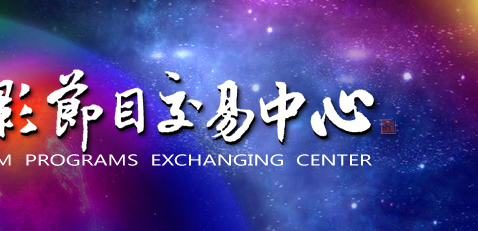柏林国际电影节(Berlin International Film Festival)官方网站:http://www.berlinale.de
柏林电影节(Berlin International Film Festival)原名西柏林国际电影节,欧洲第一流的国际电影节之一。 20世纪50年代初由阿尔弗莱德·鲍尔发起筹划,得到了当时的联邦德国政府和电影界的支持和帮助,1951年6月底至7月初在西柏林举行第一届。每年一次,原在6~7月间举行,后为与戛纳国际电影节竞争,提前至 2~3 月间举行,为期两周。其目的在于加强世界各国电影工作者的交流,促进电影艺术水平的提高。
主奖有“金熊奖”和“银熊奖”。“金熊奖”授予最佳故事片、纪录片、科教片、美术片;“银熊奖”授予最佳导演、男女演员、编剧、音乐、摄影、美工、青年作品或有特别成就的故事片等。此外,还有国际评论奖、评委会特别奖等。80年代,每年30到40个国家和地区参加,放映影片200—300部。
柏林国际电影节于1951年在美国或者从更宽泛意义上说在三个西方盟国的倡议下创立。这以后的十年内,电影节已经确立了在柏林文化生活的重要地位。英格玛·伯格曼、萨蒂亚吉特·雷伊、米开朗基罗·安东尼奥尼、罗曼·波兰斯基和法国“新浪潮”导演让-吕克·戈达尔、弗朗索瓦·特吕弗、克罗德·夏布罗尔都以他们的影片在柏林电影节上获得了巨大的国际性的成功。
Berlinale Profile
Berlin - a cosmopolitan, exciting capital, a city of culture with international appeal. In the middle of it all: the Berlinale – not only the city’s largest cultural event, but also one of the most important dates on the international film industry’s calendar. More than 19,000 film professionals from 115 countries, including about 4,000 journalists, are accredited for the Berlin International Film Festival every year. The Berlinale is truly a mega event. At the same time, it is a festival of encounters and discussions. With almost 300,000 tickets sold, the Berlinale is not only a film industry meeting. It also enjoys one of the largest film festival audiences in the world. For two weeks, art, glamour, parties and business meet at the Berlinale.
A Wide World of Film
About 400 films are shown every year as part of the Berlinale's public programme, the vast majority of which are world or European premieres. Films of every genre, length and format can be submitted for consideration. The Berlinale is divided into different sections, each with its own unique profile: big international movies in the Competition, independent and art-house productions in Panorama, movies specially for a young audience in the Generation section, the most exciting German cinema productions in Perspektive Deutsches Kino, an in-depth look at films from “distant” countries and experimental forms in the Forum, as well as an investigation of diverse cinematic possibilities in the Berlinale Shorts. The programme is rounded off by a thematic Retrospective and a Homage, which focuses on the lifework of a great cinema personality. Both of these sections, which are curated by the Berlin Film Museum, aim to place contemporary cinema within a historical context.
The European Film Market (EFM), the film trade fair integrated into the Berlinale has developed into one of the most important events for the international film business. The Berlinale and EFM, the festival and the market, together form a unique network of formal and informal connections. Since 2006, the main venue of the EFM has been the Martin-Gropius-Bau, a prestigious location with charm and character in the immediate vicinity of the festival centre at Potsdamer Platz.
Showing, enabling, initiating...
The Berlin International Film Festival sees itself as a showcase for what is happening in cinema, but also as an actor and propagator on the international film circuit. Whether through film series, workshops, panels and thematic collaborations with other cultural players - the Berlinale offers countless forms of co-operation and creative interaction.
One of the many fruits of the festival’s cooperative orientation is the Berlinale Talent Campus, which takes place during the festival and is made possible by a broad network of creative partners. The Campus invites about 350 young film talents from around the world to meet with experienced film professionals and personalities for a week of workshops and discussions. This “talent forge” is primarily about the transfer of know-how, teamwork and the exchange of ideas. The Campus is an investment in the future of the festival, but even more so in the future of cinema.
In terms of thematic focal points and forms of presentation, the Berlinale situates itself at the meeting point of the available and the possible. This fundamental openness for new ideas and solutions, for unconventional formats and surprising lateral connections also finds expression in ongoing initiatives that are permanently embedded in the festival. Such as the Berlinale Co-Production Market, which, associated to the European Film Market, provides fruitful territory for international co-productions; or the World Cinema Fund (WCF), a joint initiative with the German Federal Cultural Foundation. The idea and aim of this support mechanism is the realisation of film projects in structurally disadvantaged countries and strengthening their position in the international film industry. The Fund’s activities continue throughout the year and therefore stretch far beyond the festival itself.
The Berlin Spirit
Artists from around the world are attracted to Berlin and many consider Berlin the unofficial capital of German film. It is home to a rich cinema scene and a diverse, discerning public. Last but not least, Berlin has captured the imagination of countless filmmakers. Over and over again, the city has served as the backdrop for great silver screen productions, often becoming itself the secret protagonist of the movie. Think “film” and “Berlin” is bound to spring to mind. For two weeks every year Berlin is totally enraptured by the Berlinale.























































